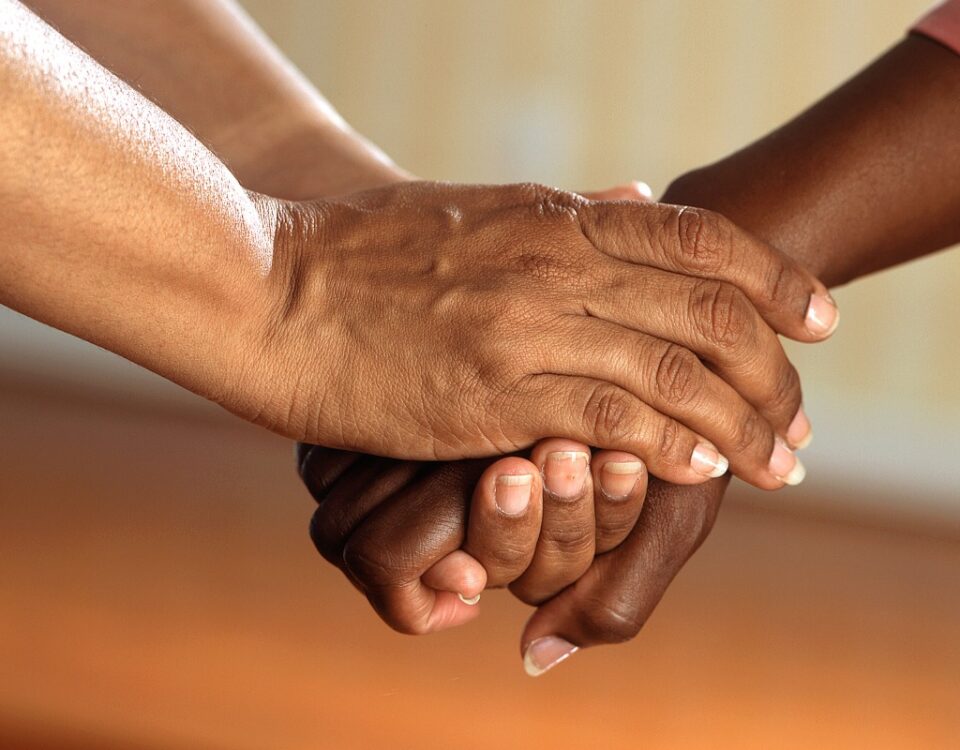
How to Help in a Crisis: A Guide for Support
December 5, 2020
What You Need to Know About Seasonal Affective Disorder
December 13, 2020“The older I get, the more I believe that the greatest kindness is acceptance.”
― Christina Baker Kline, American Novelist
Developing compassion and empathy for yourself and others can be incredibly valuable to your recovery from addiction. Understanding and kindness can help you support a loved one through their treatment or help you understand your peers in recovery. We can all benefit from developing our empathy for others. We can create a healthy and safe environment for one another by practicing kindness and compassion. We might have a loved one whose actions have hurt us, or we might be inflicting pain upon ourselves with our addiction. Treating others and ourselves with kindness can build a healthy foundation for healing to begin.
Dropping the Need to Blame
Whether we are blaming ourselves or others for our issues, we need to take accountability for our feelings. Blame puts that responsibility on someone else or creates a mindset of denied accountability in the case of self-blame. When we are blaming ourselves for our issues, we might not be taking actionable steps to self-improvement. We might wallow in our suffering and shame, thinking that enough guilt will fix the problem or absolve us from responsibility. We might feel “comfortable” in self-blame and not recognize the self-destructive nature of self-blame. Blaming comes from a desire to find fault in others or ourselves. However, blame gets in the way and creates a cycle of shame that never allows healing to take hold.
Compassion: Solving the Problem Without Blame
A person can become addicted to drugs or alcohol for several reasons. When we blame ourselves or others, we are deflecting from these underlying causes. We are not helping ourselves or our loved ones by seeking blame. When we adopt a compassionate and empathetic approach, we create a platform and foundation for recovery by dropping blame. Compassion and empathy require us to accept that your loved one has an addiction. They need help, and no one is at fault: not them, not you, and not anyone else. Instead of looking for someone or something to blame, focus your energy on solving the problem.
Acceptance Before Knowing Why
When you practice compassion, you seek to understand without judgment or blame. You are taking the high-road and putting your anger or guilt aside to tackle the issue. Sometimes, we want to know why the problem of addiction exists in order to solve it. We might need to work backward and accept the issue before we understand it fully. Unconditional acceptance in recovery leads to understanding, and not the other way around. Often, we operate under the false premise that we need to understand the addiction before we accept it. Sometimes, the “why” comes later. The “why” will come after the acceptance and the acknowledgment. Many 12-step programs are structured this way; meetings open with members admitting that they have a problem. Once they state the admission of the issue, the healing begins.
Compassion Is Acceptance
Practice unconditional acceptance to build empathy and compassion. We can accept things for what they are and not pine for something that does not exist. We can set goals and expectations for the future. We can grow in recovery by first acknowledging where we are in the present. We do not discard an acorn for not being a tree; we accept the seed for its important place as the beginning of a great oak. The same is true of our recovery and our loved one’s journey; they need to begin somewhere. Accept that you are facing the mountain and taking your first step. You will not get to the top by denying that you are still in the foothills.
Empathetic Listening and Self-Talk
Whether you are in recovery or supporting a loved one, you can learn to listen empathetically to help them. By practicing these skills, you can help your loved one who is going through the process of recovery:
- Listen fully to the other person’s story without interruption.
- Show that you are present by making eye contact and displaying appropriate emotions.
- Ask clarifying questions to show that you are listening and that you desire to understand.
- Summarize and paraphrase what they have said to you to verify that you understand.
If you are going through recovery, be kind to yourself. Remember to say positive things to yourself along the way. Discarding self-blame is not a means of absolving your responsibility to yourself. Instead, you are fully accepting yourself as you are and taking steps toward your growth. You can do this, and your loved ones are here to help!
Compassion and empathy can help those in recovery grow and heal. Everyone makes mistakes or has setbacks in life. Sometimes, we look for someone or something to blame our problems on while neglecting to help. We might feel justified in our self-guilt due to the problems we have inflicted upon ourselves and others. Blame gets in the way of healing. Compassion is the adversary of blame. Compassion means accepting the issue at hand before knowing how to fix it. Without unconditional acceptance, a person in recovery may not have any foothold to take self-growth and healing steps. We all make mistakes and sometimes our actions hurt others. Other times, our loved ones hurt us, and we want to blame them for their addictions. Seek to understand the issue and start with accepting the problem. Growth will flourish with compassion. The Kimberly Center is here to help those struggling with addictions. Call us at (855) 452-3683.




